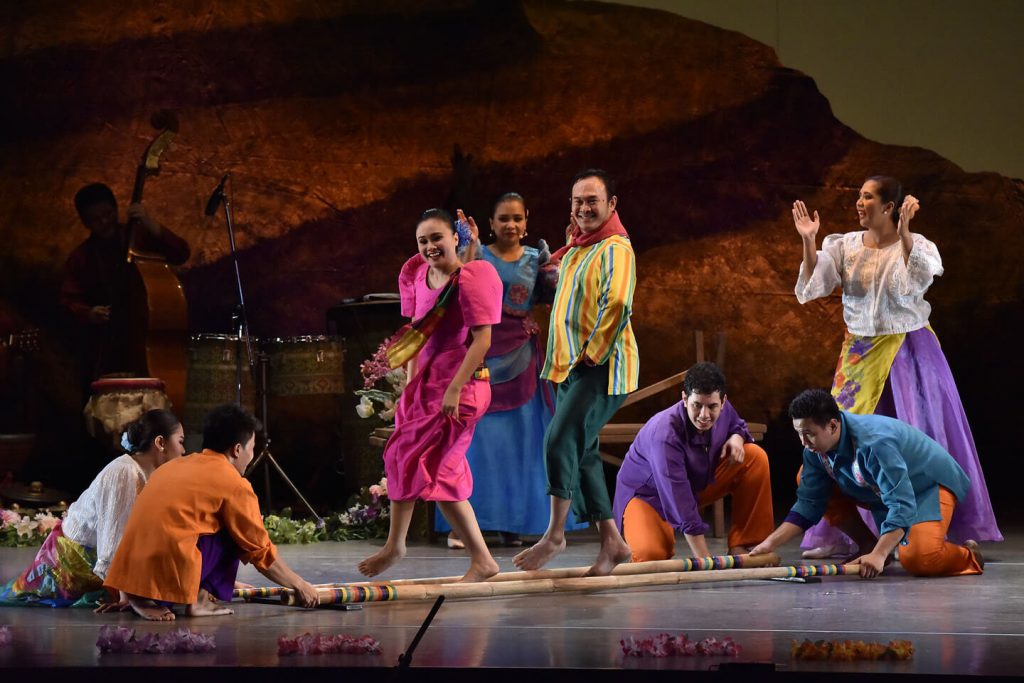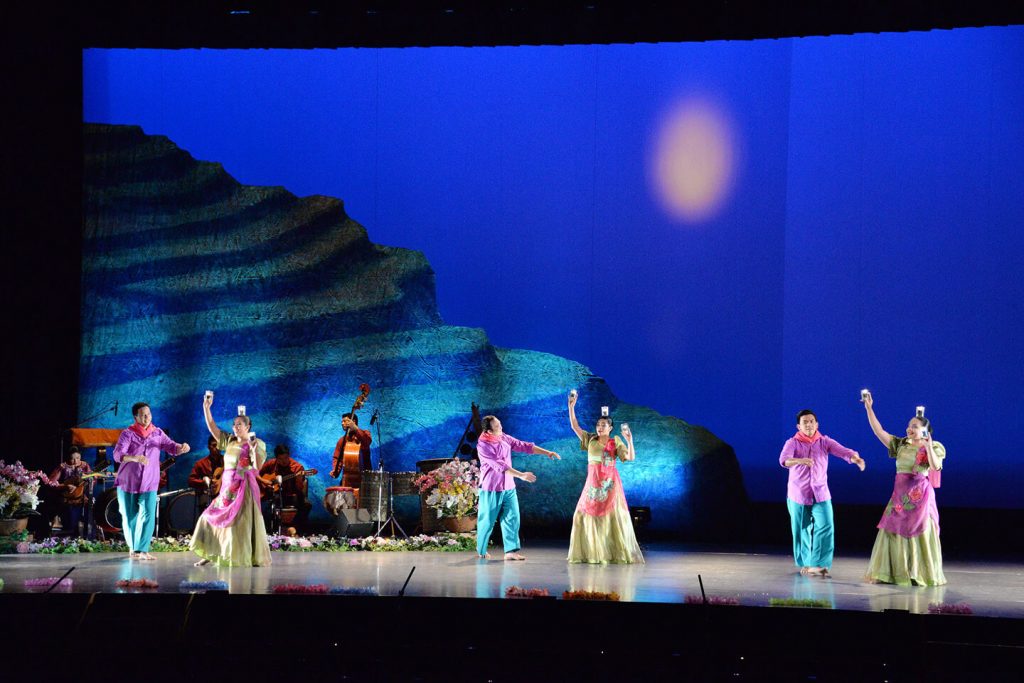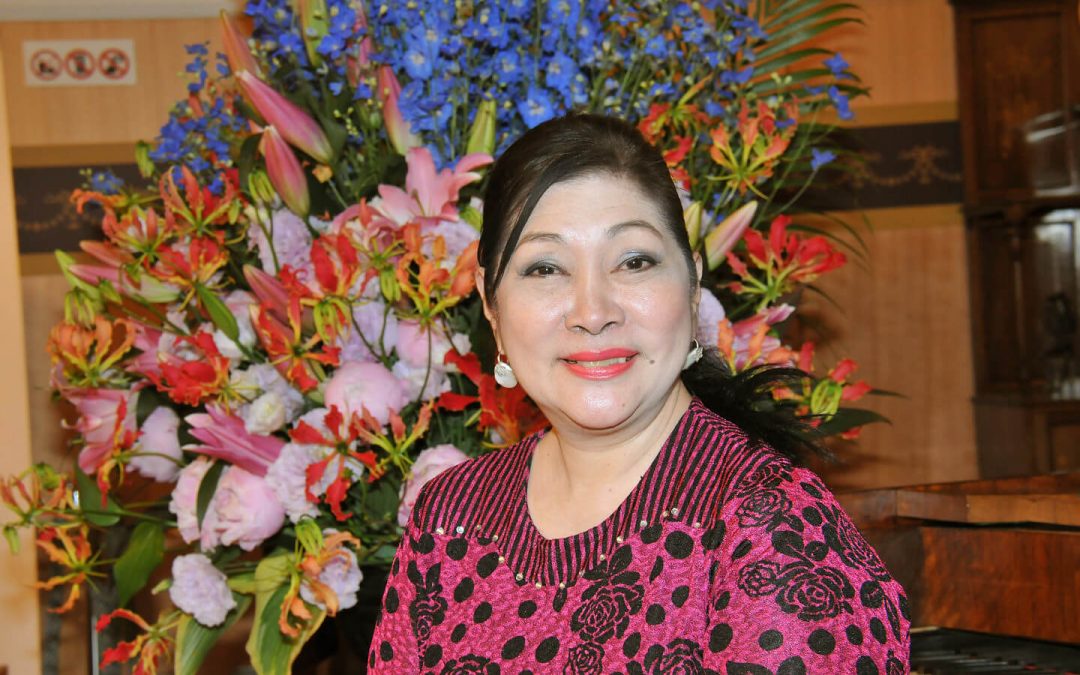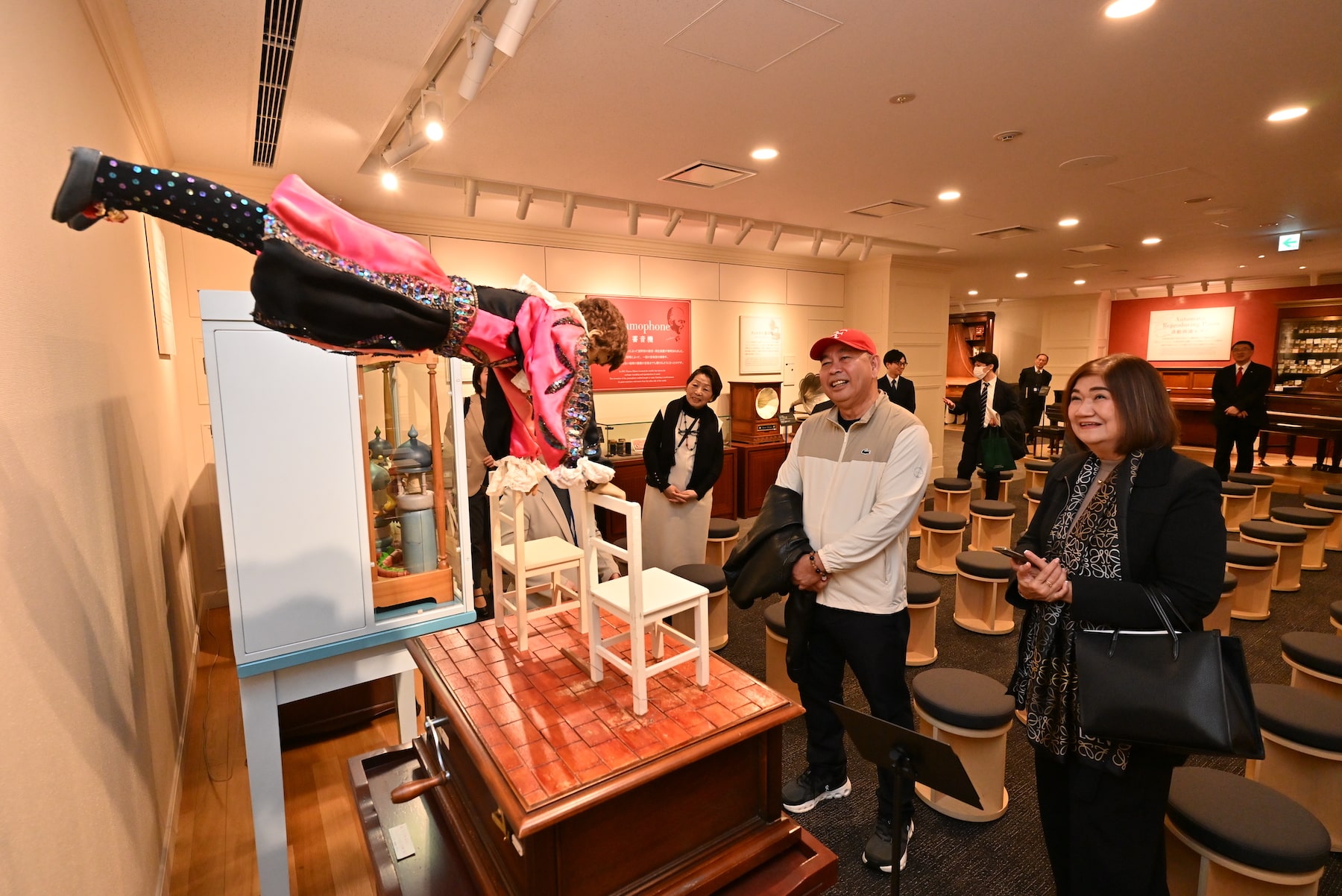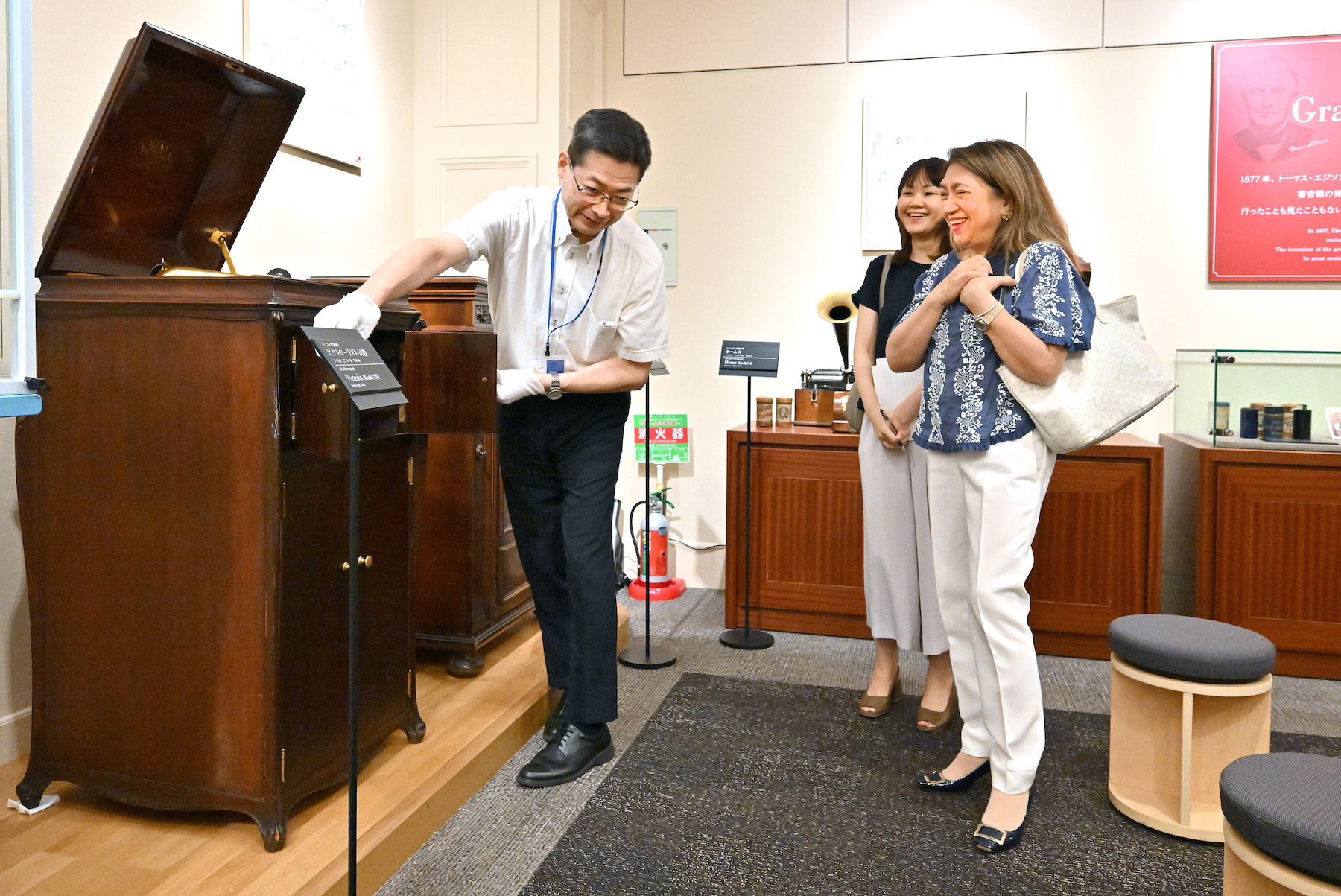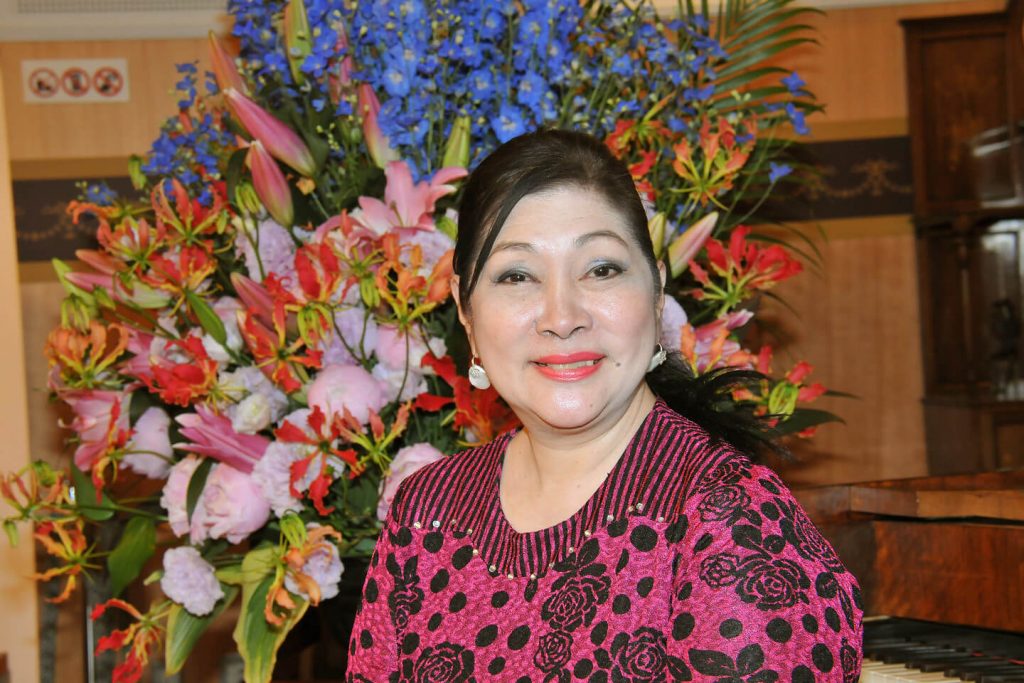
Interview with Ms. Suzie Moya Benitez, Executive Director of the Bayanihan
Min-On: Thank you so much for your wonderful performances yesterday and today in Tokyo. The Bayanihan has not performed in Japan since your last visit more than 20 years ago. What are your impressions from this tour and the Japanese audiences?
Ms. Susie M. Benitez: There is a feeling of excitement and anxiety during every performance we give worldwide, because we want every show to be a great success. We want our audience to receive the message we’re sending, because our dance is always filled with emotion, bold statements and situational relevance. Since we want to bring the story of the Philippines to Japan, we were excited, yet also slightly anxious about how the audience would interpret us. However, in reality we have felt nothing but passion and enthusiasm from our Japanese audiences. As you saw in the theater, our program is a combination of many different cultural influences in the Philippines. There are Spanish influences in some dances, there are tribal dances, and maybe you noticed that some dances have Japanese influences, too. It is a very diversified program, and I hope that every single dance number appeals to our Japanese audiences.
Min-On: We think the Bayanihan carries an important mission as a cultural emissary of the Philippines. Please share your thoughts on this mission.
Ms. Benitez: The Bayanihan was founded by Dr. Helena Z. Benitez, with the intention to foster nationalism and patriotism among Filipinos. At the same time, we try to unearth stories about what Filipinos had before the era of colonization. One thing we discovered is that before the Spaniards came to the Philippines, we Filipinos already had our own music and dance woven into everyday life. Therefore, we have carried out the mission of researching, recording and promoting those stories and beautiful vestiges of the Philippines as our precious cultural heritage. I think it is very significant that the Bayanihan has upheld all the assignments and invitations we’ve been given across the globe.
If I may say something as the second-generation director of the Bayanihan, in 2002 we decided to join the World Dance Competition in order to establish our performance as something the world wants and that everyone can understand. Since
then, dedication and hard work have allowed us to become nine-time Grand Prize winners at the World Dance Competition.
Min-On: That’s an exceptional achievement. Throughout Min-On’s experiences in promoting cultural exchange, we all believe in the power of music and cultural performance. Please share your thoughts on that.
Ms. Benitez: I really think that anyone involved in dance, music and the arts—or other cultural endeavors—can help make the world a better place. You don’t have to learn a foreign language in order to communicate with others around the globe. Even if you don’t understand each other’s language, music and dance are always universal. They are irreplaceable tools for fostering understanding among the diverse people of the world. We know that people are very diverse culturally; however, as dancers and musicians, when we’re face to face with someone from another culture, we speak the same language—dance and music. It is the unifying factor in our endeavors and an essential tool for changing our world, people’s attitudes and people’s outlooks in pursuing better lives.
